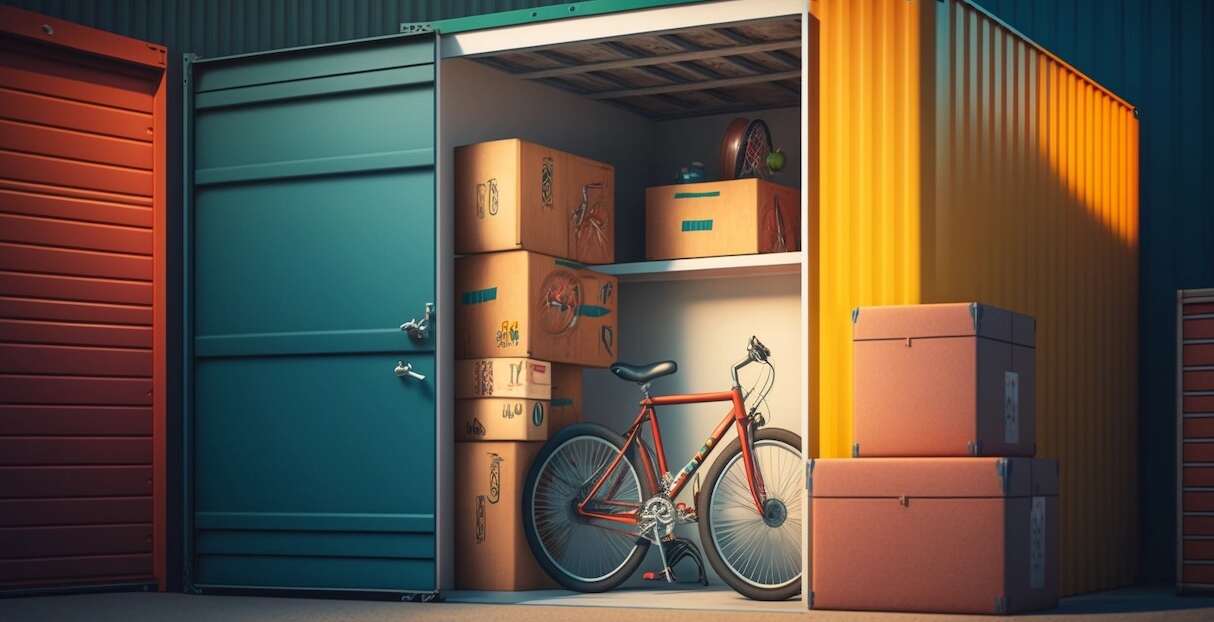As a renter, you may be counting on a storage unit to hold additional items—perhaps due to a move, a smaller apartment, or simply wanting to get organized. What happens if disaster strikes your storage unit, however? Does your renters insurance cover those valued belongings, from electronics to furniture? With increasing numbers of renters turning to self-storage in the heart of city living or life change, understanding where you are with insurance protection is more important than ever. This comprehensive guide answers the all-important question, Does renters insurance cover storage units? and offers clear, actionable information on coverage details, limits, and how to safeguard your possessions.
Does Renters Insurance Cover Storage Units?
What is Renters Insurance?
Renter’s insurance is an insurance policy that insures renters against loss of money. It contains three main components: personal property coverage, liability coverage, and additional living expenses. Personal property coverage is the most significant component when it comes to storage units. This coverage insures your property—furniture, electronics, and clothes—against insurable perils wherever they may be. Knowing about this coverage is the first step to understanding how it works in your storage unit.
Is Renters Insurance Coverage for Storage Units?
Yes, most renters insurance policies also insure personal property in storage units under off-premises coverage. That’s right, your belongings are not only insured in your apartment but also in a storage unit, your vehicle, or even when you’re overseas. But there’s a caveat: off-premises coverage typically has a limit, typically 10% of your overall personal property coverage. For example, if your policy insures $50,000 of personal property, you’d get up to $5,000 for personal property in a storage unit. Some providers, like Lemonade, might have a specific limit, e.g., $1,000, depending on the state (Lemonade, 2025). Always review your policy to discover the exact limit.
Why It Matters
Storage units are a godsend for renters experiencing moves, downsizing, or seasonal storage of equipment like holiday decorations or sports gear. Without knowing what your insurance covers, you risk losing valuable items such as electronics, collectibles, or heirlooms. For instance, a pricey TV or an antique guitar is worth thousands, and losing it would take a significant chunk out of your wallet. Knowing whether your renters insurance covers such items will spare you from shock.
What Renters Insurance Covers in Storage Units
Covered Perils
Renters insurance typically covers the same hazards in a storage unit as it would your home. They include fire, burglary, vandalism, water damage from ruptured pipes, windstorms, and hail. For example, if your storage unit or a burglar destroys it by fire or by breaking in, your policy may indemnify your loss, as long as the contents are within your coverage limits. This secures your contents no matter where you keep them (Allstate, 2025).
Coverage Limits
Although renters insurance does cover off-premises property, the limit is typically a maximum of 10% of your personal property limit. On a $50,000 policy, that is $5,000 off-premises property. Some companies, like Lemonade, have lower limits, like $1,000 in some states (Lemonade, 2025). Firearms, electronics, or jewelry typically have additional sub-limits, i.e., $1,000 to $2,500, unless you pay extra with an endorsement. Always check your policy so you know about these limits.
Exceptions to Coverage Limits
In some cases, your personal property coverage may provide coverage for contents stored in a storage unit. For example, if your apartment is made uninhabitable by an insurable occurrence (e.g., a fire or substantial water damage) and personal property is temporarily stored in a unit, your entire policy limit may be involved. This is a rare exception and will be decided by your company, so speak with your company (State Farm, 2025).
What Isn’t Does Renters Insurance Cover Storage Units?
Common Exclusions
Not everything lost in a storage unit is covered. Exclusions usually include flood, earthquake, mold and mildew, infestation by pests, and loss due to neglect (e.g., not locking your unit away in a secure place). For instance, if your unit is flooded by a nearby overflowing river, your renters insurance will probably not cover the loss. The same applies to what is stored in another residence, e.g., a friend’s home in storage, or motor vehicles in a storage unit (Progressive, 2025).
High-Value Item Restrictions
Expensive items like jewelry, artwork, or collectibles usually have strict sub-limits, i.e., $1,500 for jewelry, unless you have endorsed them. It is difficult to prove the value of such items without receipts or appraisals in case of a claim. e.g., an engagement ring costing $10,000 in a unit will only be insured up to $1,500 unless you have added a special endorsement (Policygenius, 2025).
Negligence and Facility Limitations
If you do not secure your storage unit properly—i.e., fail to lock it—your claim could be denied on grounds of negligence. Storage units also have some things they prohibit, such as chemicals or firearms, which if they are stored in contravention of their policy could nullify coverage. Review your facility’s rules to be caught off guard (StoragePug, 2025).
Advantages of Instituting Renters Insurance for Storage Facilities
Cost-Effectiveness
One of the best benefits of renter’s insurance is that it usually renders additional storage unit insurance unnecessary. The policy can begin as low as $5/month and already has off-premises coverage, which is an inexpensive way to cover stored belongings (The Zebra, 2025). Why spend extra when your policy may already be doing the job?
Convenience
Off-premises coverage facilitates easier coverage of several locations. Wherever your belongings may be – in your flat, storage unit, or even your car – your renters coverage insures you under a single policy. This spares you the hassle of working with several insurance policies (Nationwide, 2025).
Flexibility
Renter’s insurance provides worldwide coverage for your possessions, ideal for travelers or storage. Wherever your possessions are in temporary storage in town or a suitcase overseas, your insurance reassures you wherever you happen to be (Amica Insurance, 2025).
Limitations and When to Take Extra Coverage

When 10% Coverage Won’t Do
The $10% off-premises limit of coverage might not be sufficient if you possess items of high value. If, for example, you possess $10,000 of electronics and furniture in storage in a unit and possess only $3,000 of coverage for off-premises, you would not be adequately covered. This lack would have you paying the difference out-of-pocket for a big loss (MoneyGeek, 2025).
Options for Further Coverage
To fill this gap, use these options:
-
Increase Personal Property Maximums: Raising your renters policy from $50,000 to $100,000 may increase your off-premises coverage from $5,000 to $10,000, which gives you greater protection for items that are stored elsewhere.
-
Scheduled Endorsements: Add endorsements for items of value like jewelry, antiques, or art. This gives them full coverage for their appraised value.
-
Storage Unit Insurance: Third-party companies or storage centers sell $1,000 to $25,000 worth of policies for $5 to $20 per month. The policies can include excluded perils like vermin or flooding, filling gaps in renters insurance (Storage Protectors, 2025).
Comparing Costs
Storage unit insurance is affordable, with prices beginning at $5/month for $1,000 of protection. It usually has smaller deductibles than tenants insurance, which can range from $500 to $1,000. But tenants’ insurance usually costs less if your off-premises protection is sufficient for your requirements (ValuePenguin, 2025).
Practical Steps to Keep Contents Secure in Storage Space
- Take a Full Inventory: Take photographs of all items, video, serial numbers, and receipts prior to storing items. This facilitates filing claims and allows you to document the worth of your items. Utilize apps such as Sortly or a basic spreadsheet to organize (Move.org, 2025).
- Choose a Secure Storage Container: Choose a building with strong security, such as 24/7 monitoring, gated access, and climate control, to minimize threat risks such as theft or moisture damage. Climate-controlled units are particularly significant for delicate items such as electronics or artwork (FreeUp Storage, 2025).
- Proper Packing and Storage: Pack securely to protect your belongings. Utilize water-resistant containers, stack boxes on shelving units higher than the ground level to prevent water damage, and do not store perishables that would cause pest infestation. These prevent hazards that can cause exposed damage (RentCafe, 2025).
- Review Your Policy: Verify your off-premises coverage, limits, and exclusions with your insurance company. Update your policy if you keep valuable items or move units. Periodic reviews keep your coverage up to date with your needs (NJM Insurance, 2025).
FAQs About Does Renters Insurance Cover Storage Units?
Is renters insurance for theft out of a storage unit?
Yes, you’re generally covered for theft, but only to your off-premises limit (e.g., $5,000 on a $50,000 policy) and after you’ve met your deductible. Having your items photographed makes it easier to make a claim.
What if my storage unit is destroyed by a flood?
Flood loss is generally excluded under renters insurance. You would need to buy a separate flood insurance policy, which is usually sold by the National Flood Insurance Program or private insurers.
Must I buy renters insurance for a storage unit by itself?
No, renters insurance requires a primary rental residence. If you only need to insure a storage unit, research storage unit insurance provided by your facility or a third party.
Do storage units need insurance?
Some equipment needs to be insured, either on your policy or theirs. Check your rental contract to see what’s needed.
How can I make a claim for the contents of a storage unit?
Notify your insurance company, give them a detailed inventory (photos, receipts, etc.), and explain the loss. Your insurance company will walk you through the claims process, which may include an inspection.
Conclusion: Does Renters Insurance Cover Storage Units?
Renters insurance tends to cover storage units under off-premises coverage, protecting your belongings from hazards like fire, theft, and vandalism. But with limits typically capped at 10% of your personal property coverage and exclusions like flooding or rodent damage, it’s not the end-all and be-all. To avoid gaps, read your policy, approximate the value of your stored items, and explore options like increasing coverage or buying storage unit insurance. By being proactive—like taking inventory and choosing a secure facility—you can rest easy, knowing your belongings are covered wherever they are. Don’t roll the dice—check your policy now.
If you want more Information, explore our website: MyWebInsurance.





